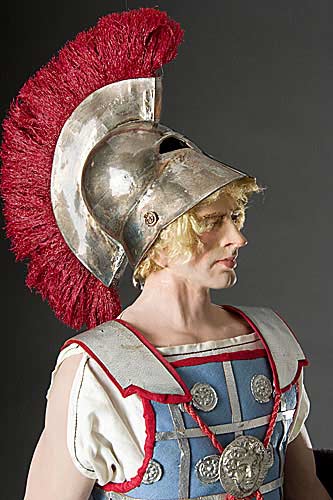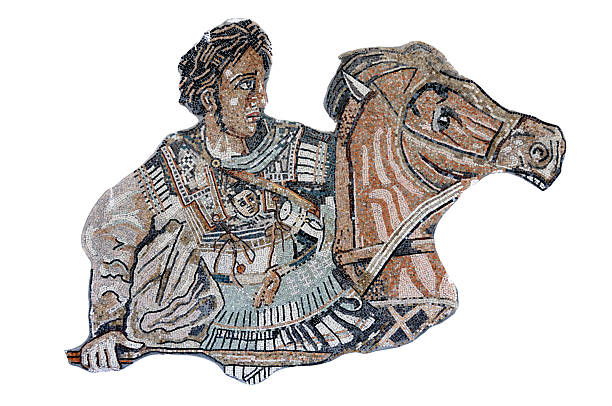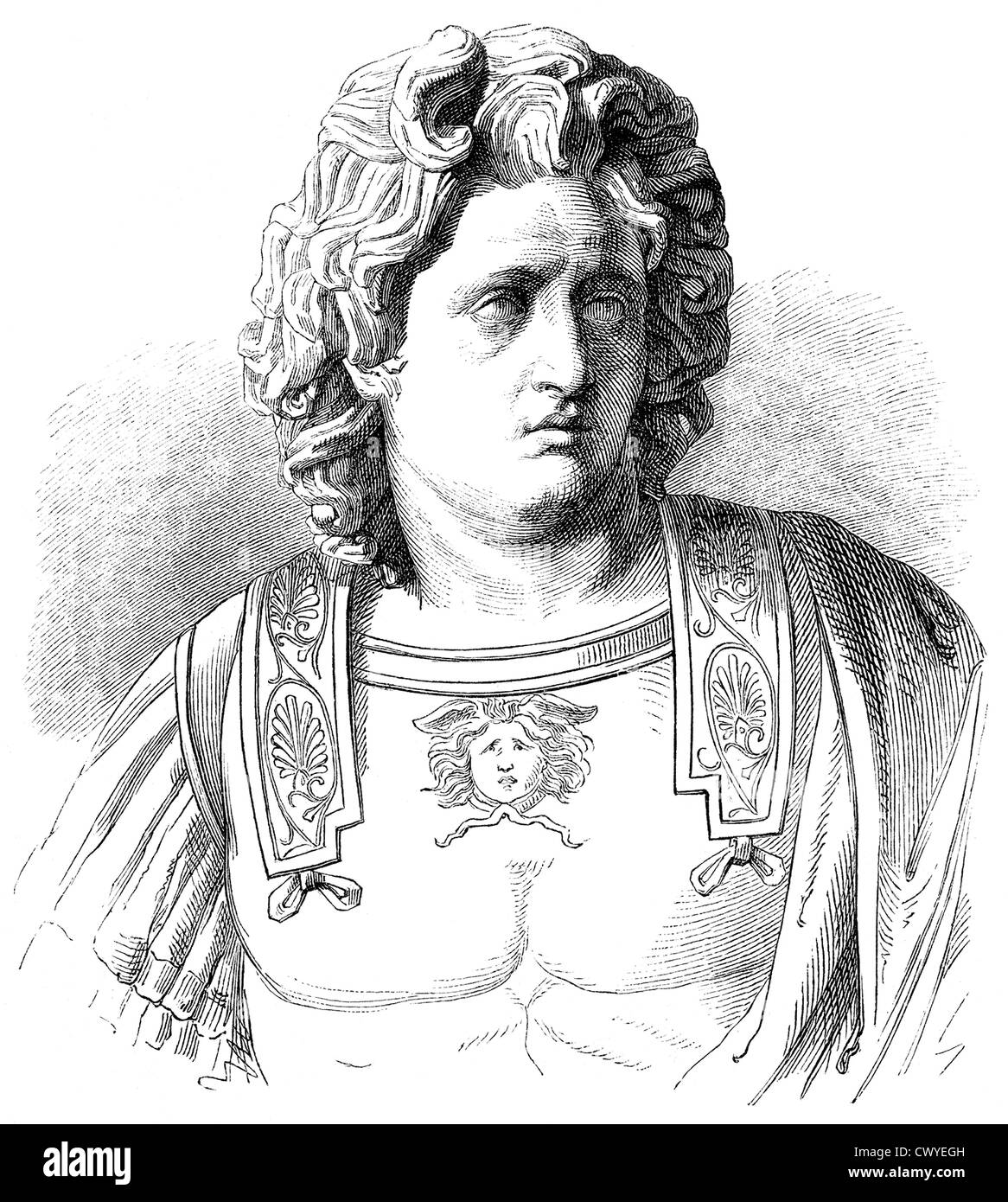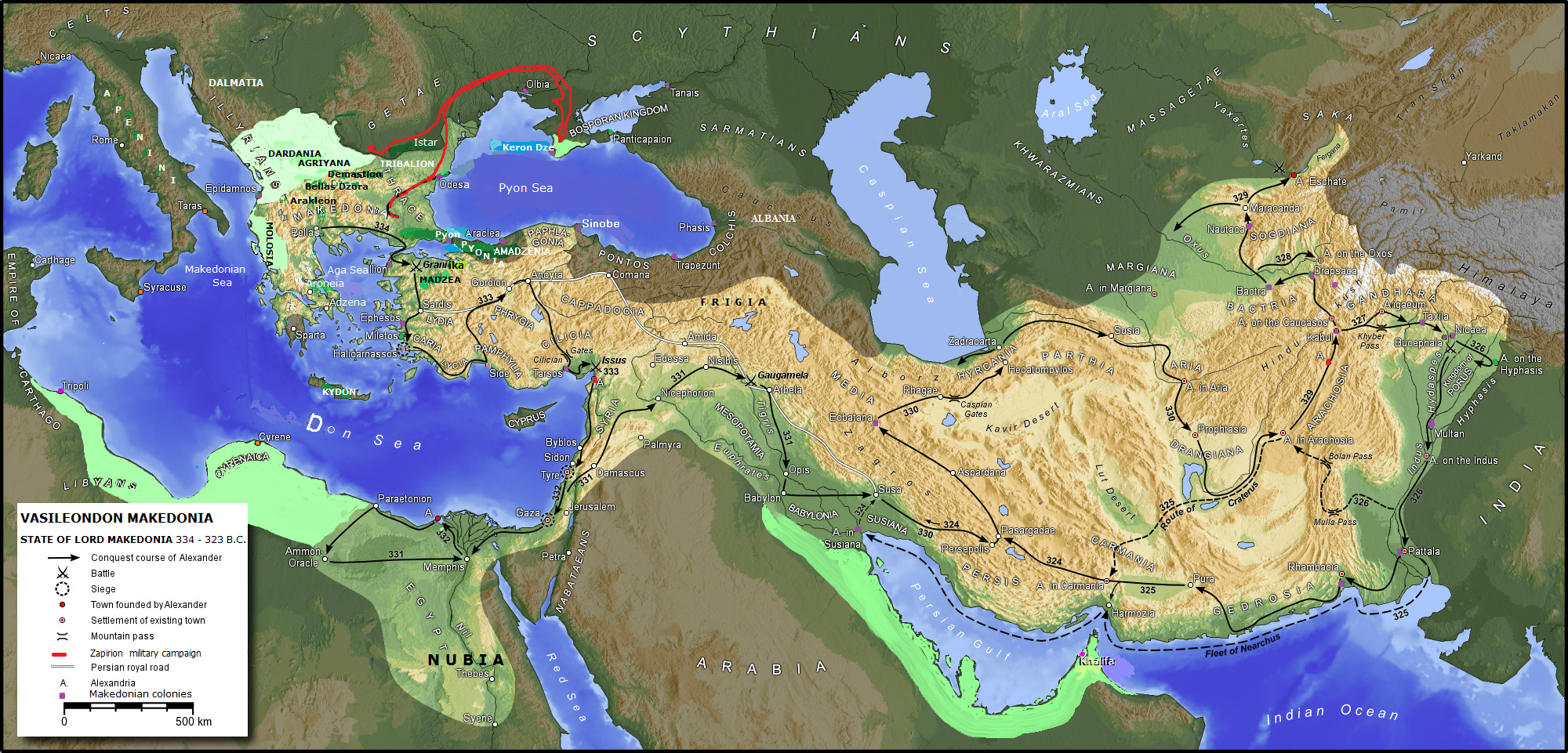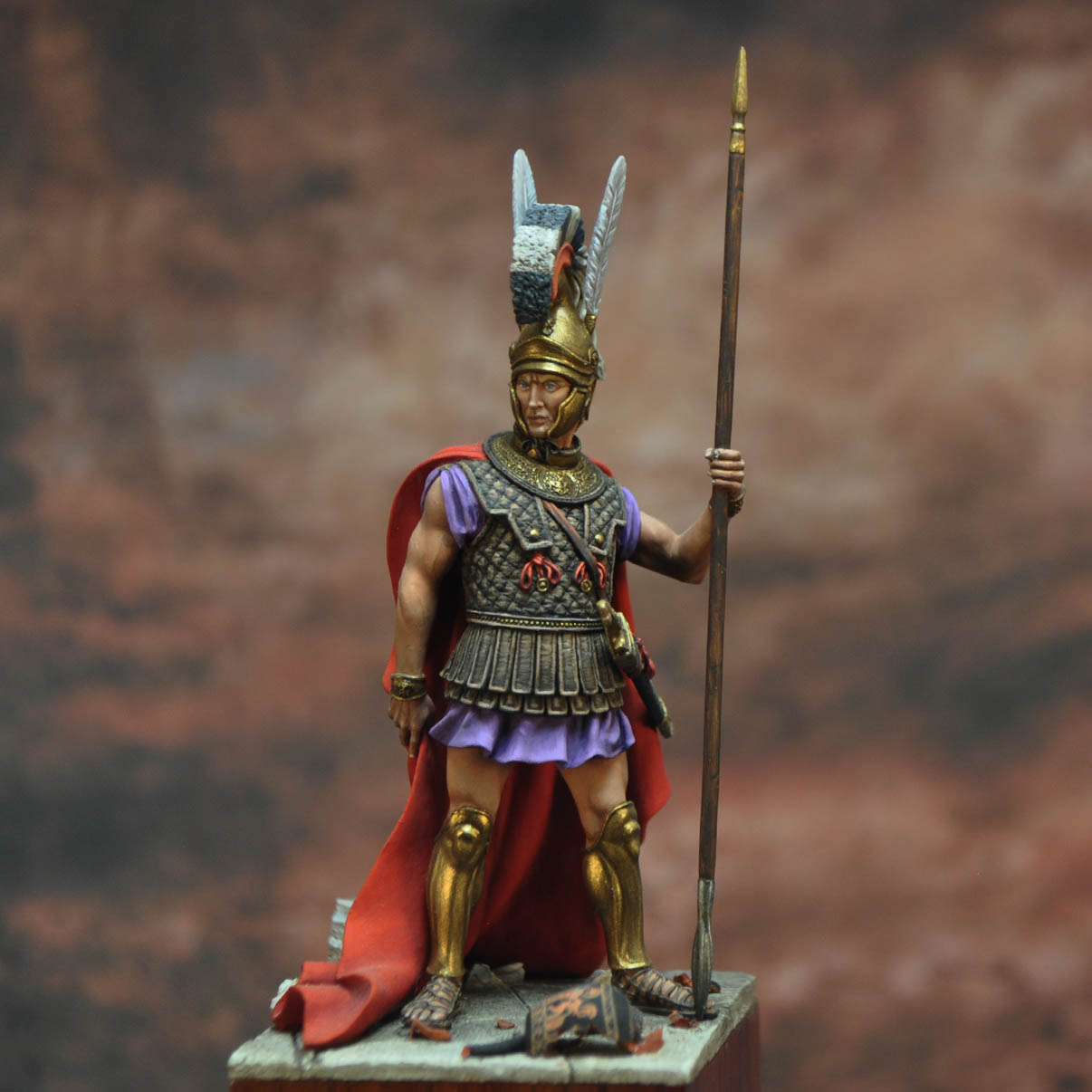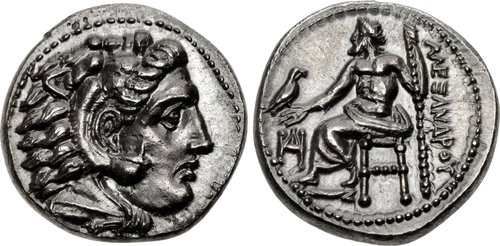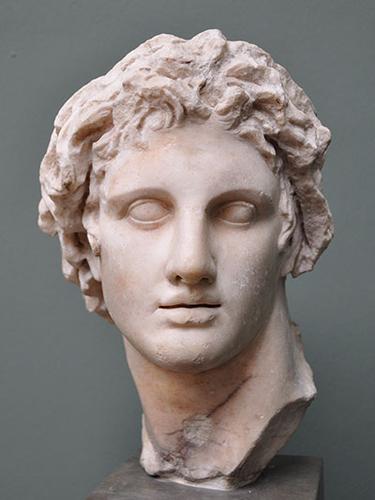Alexander III of Macedon, also known as Alexander the Great, was a king of ancient Macedon who conquered much of the known world in the 4th century BCE. He was born in 356 BCE in Pella, the capital of Macedon, to King Philip II and Queen Olympias. Alexander was tutored by the philosopher Aristotle and became proficient in a number of subjects, including philosophy, literature, and military strategy.
Alexander inherited the throne of Macedon at the age of 20 upon the assassination of his father. He quickly set out to expand his kingdom and began a series of military campaigns that would eventually lead to the conquest of the Persian Empire. Alexander's army, made up of Macedonian and Greek soldiers, was known for its discipline and tactical superiority, and it was able to defeat larger and better-equipped Persian forces.
Alexander's conquests took him as far east as present-day India, where he encountered and defeated the Indian king Porus at the Battle of the Hydaspes. However, after several years of continuous fighting, Alexander's soldiers grew tired and mutinied, refusing to go any further. Alexander was forced to turn back and eventually returned to Macedon, where he died at the age of 32 in 323 BCE.
Despite his short life, Alexander left a lasting legacy. He is remembered for his military prowess and his ability to unite diverse cultures under his rule. He is also credited with spreading Greek culture and language throughout the known world, making him a key figure in the Hellenistic period. Alexander's legacy has been the subject of much debate and interpretation over the centuries, with some seeing him as a ruthless conqueror and others as a visionary leader.
In conclusion, Alexander III of Macedon, also known as Alexander the Great, was a powerful and influential king who conquered much of the known world in the 4th century BCE. He is remembered for his military prowess, his ability to unite diverse cultures, and his role in spreading Greek culture and language throughout the world. Despite his controversial legacy, Alexander's impact on history is undeniable.

